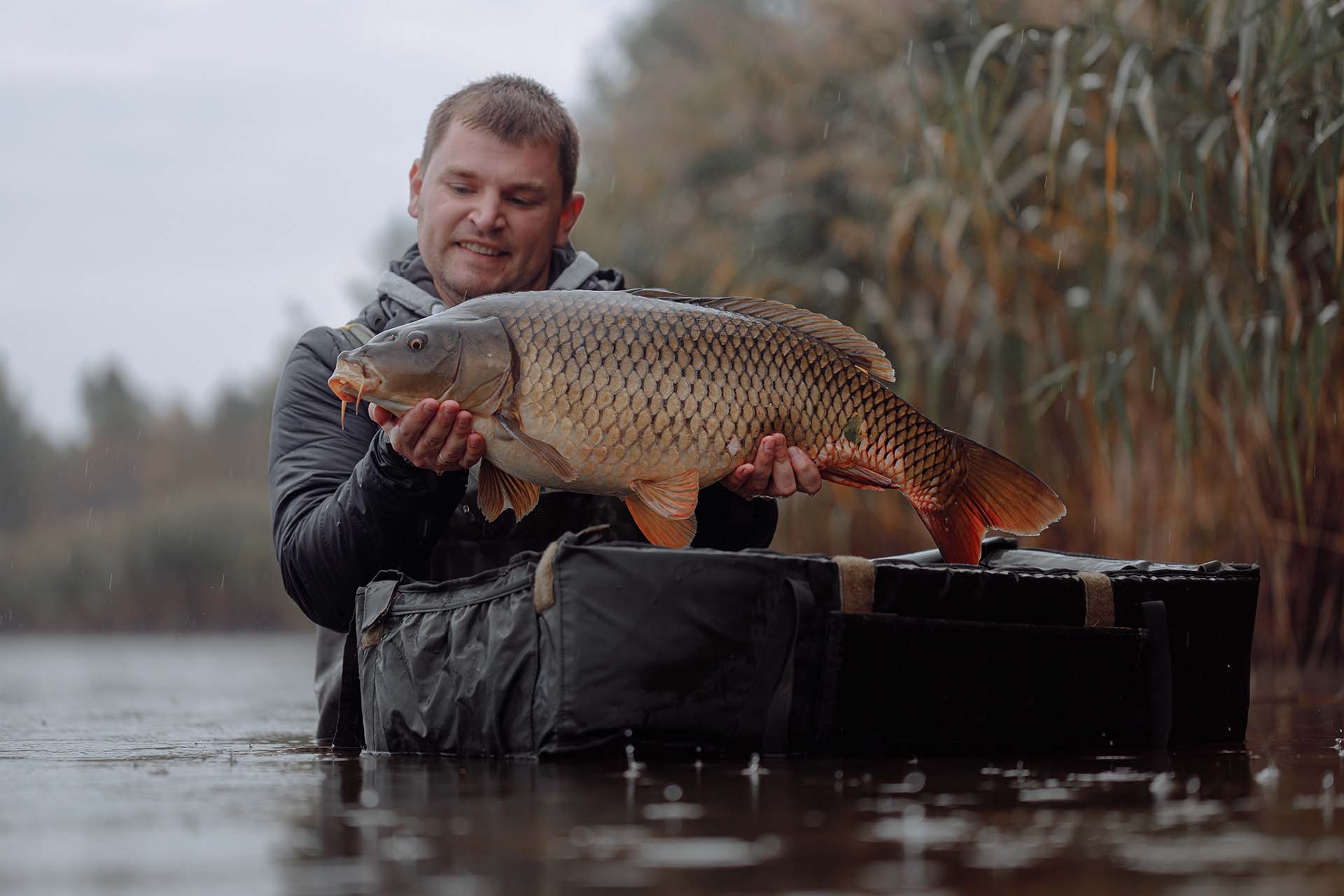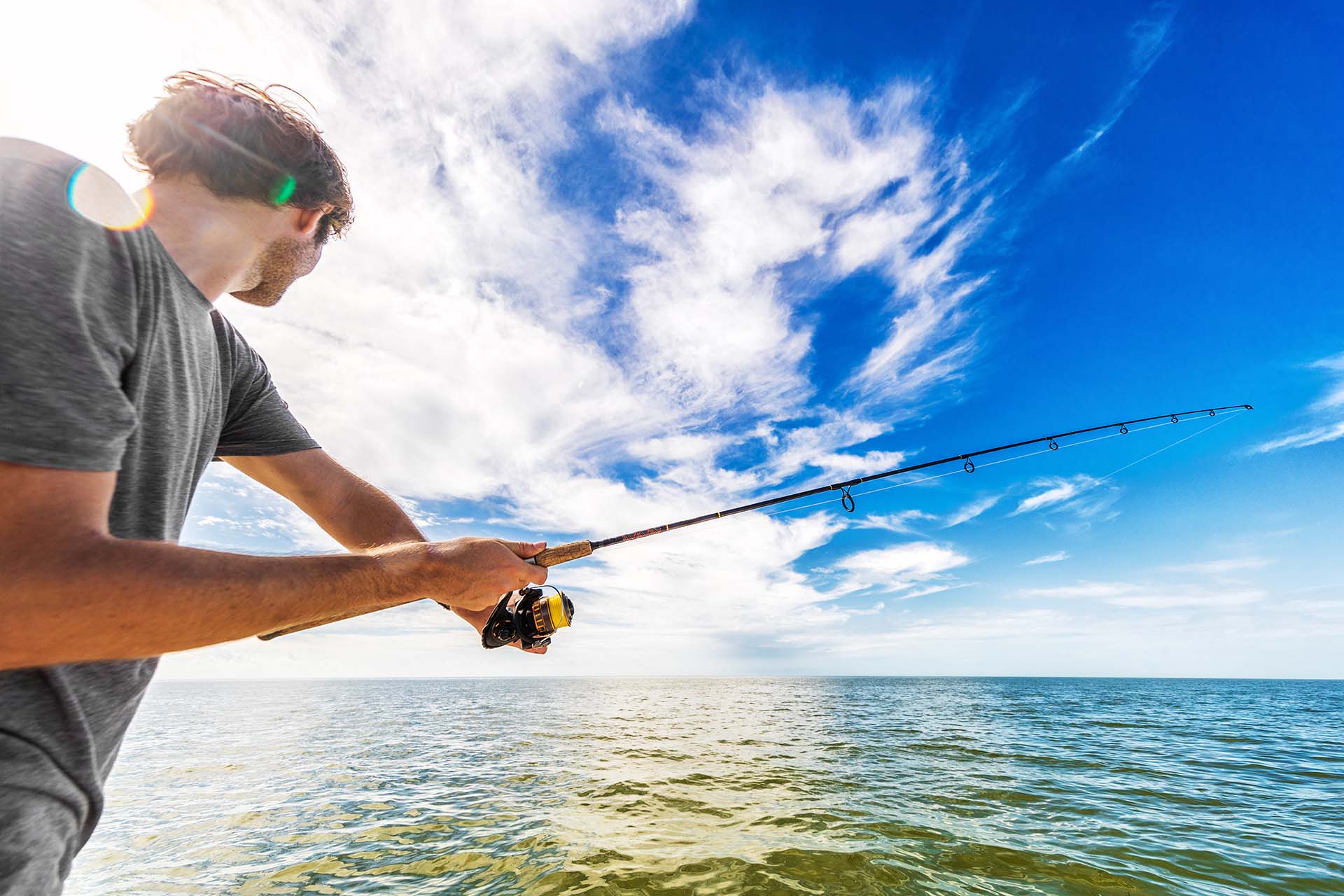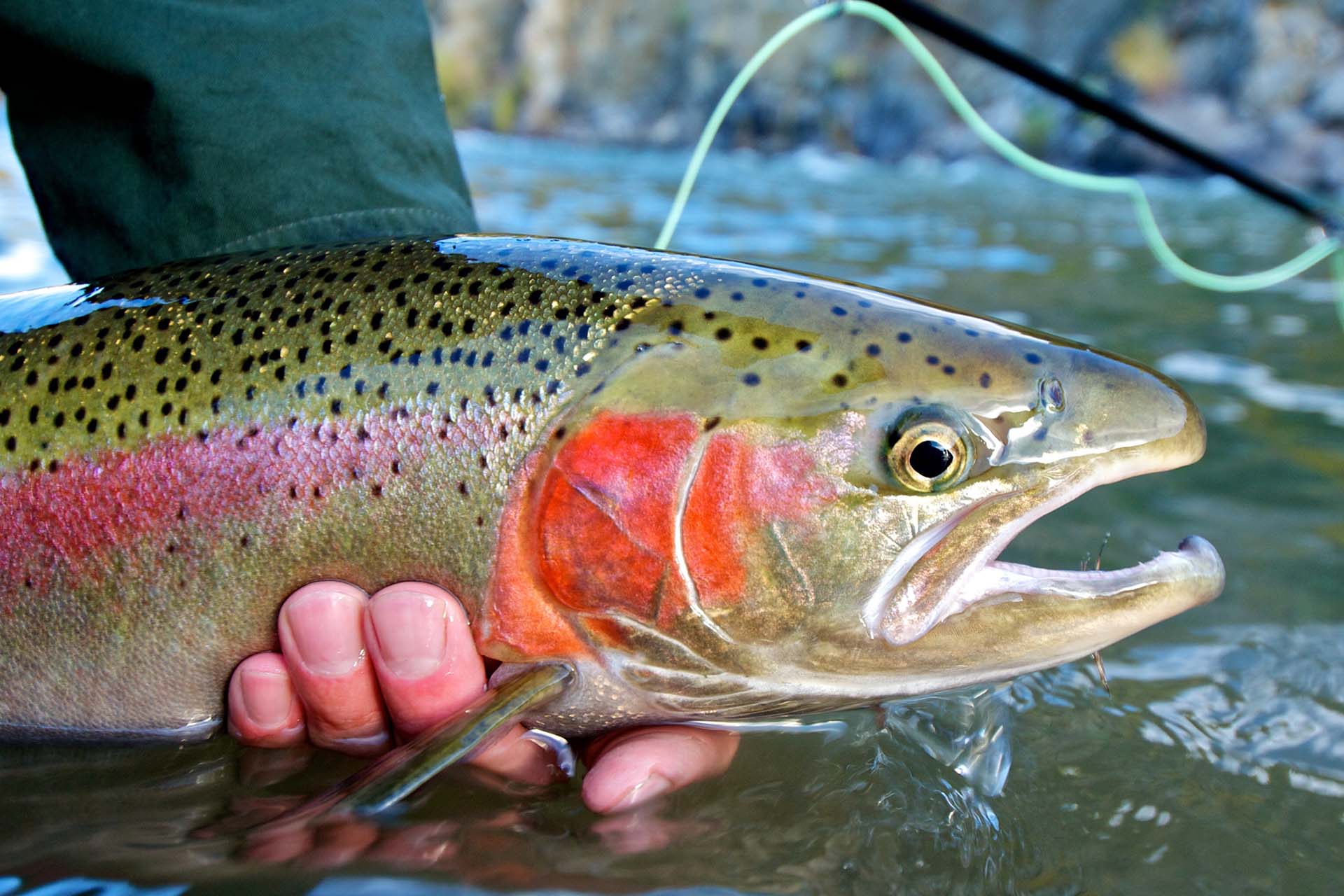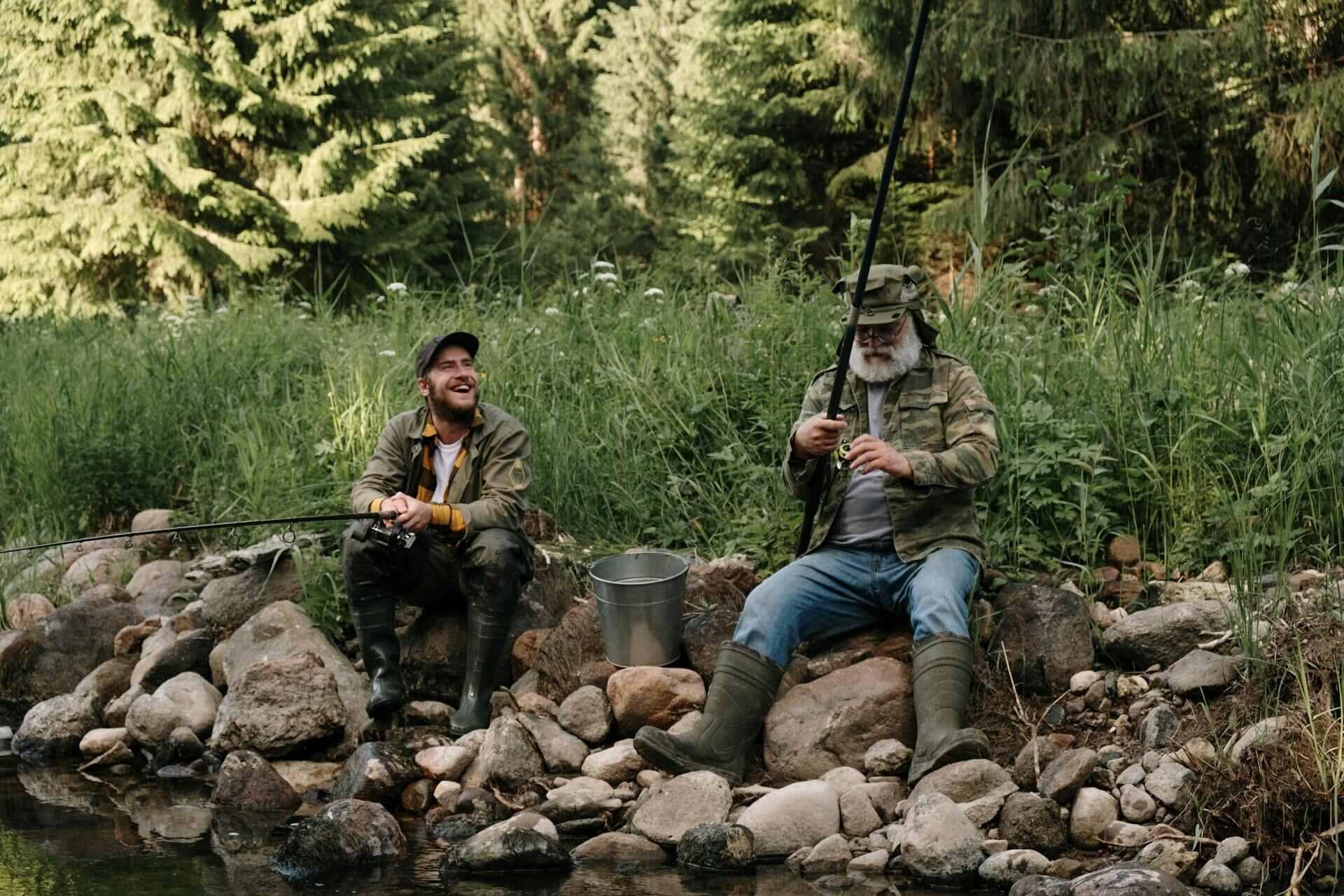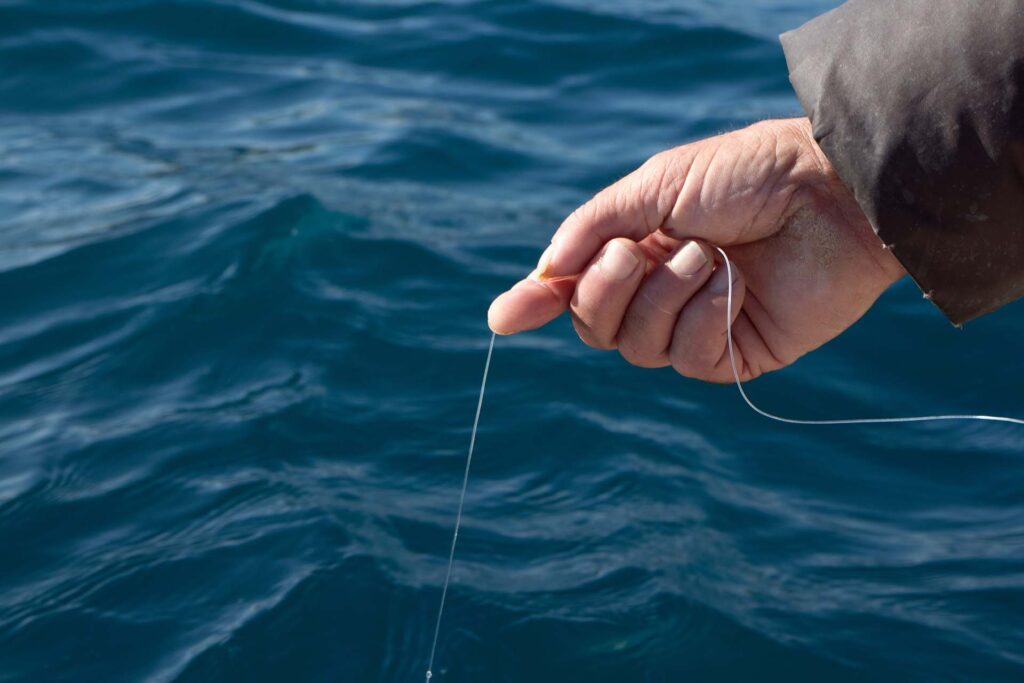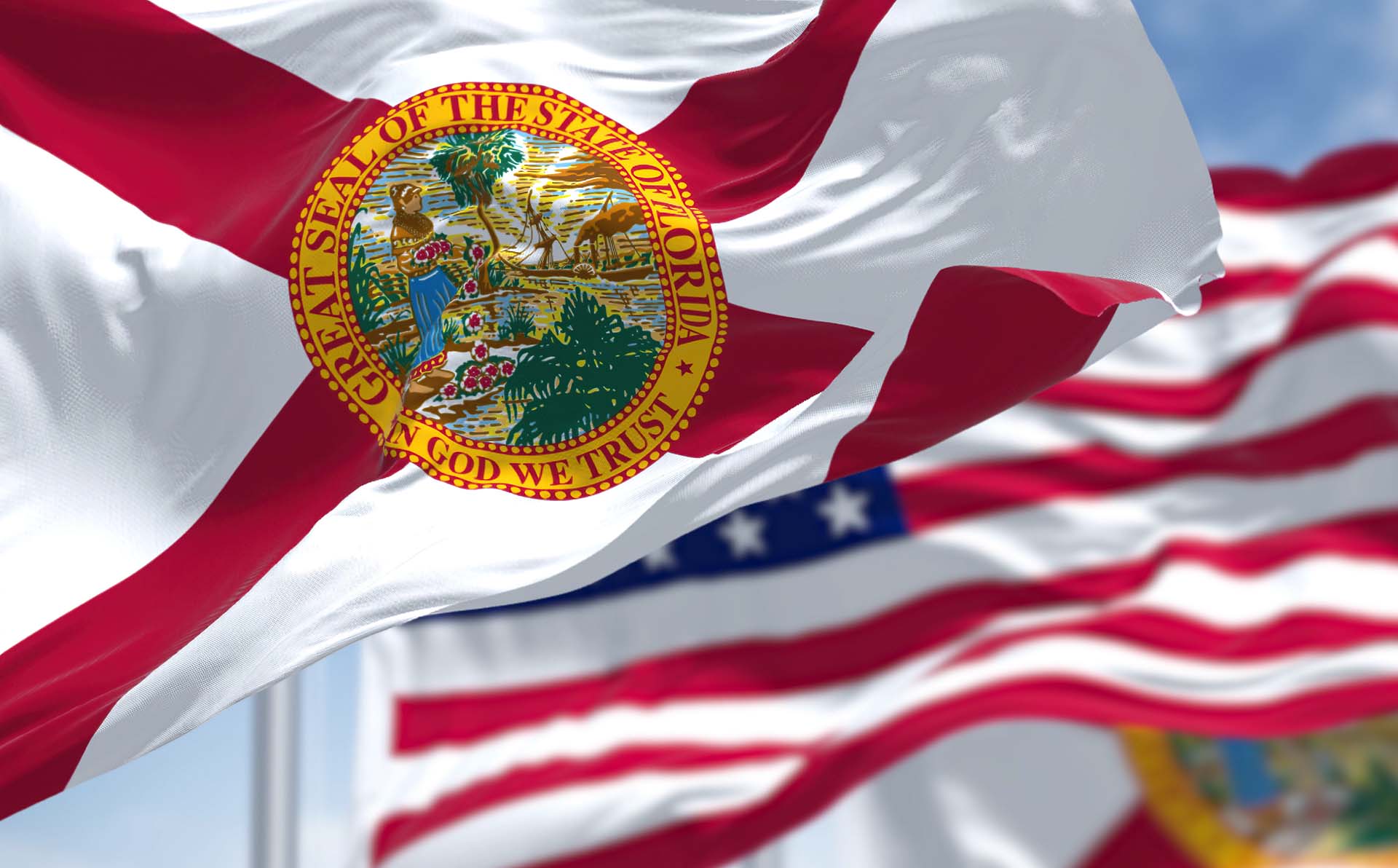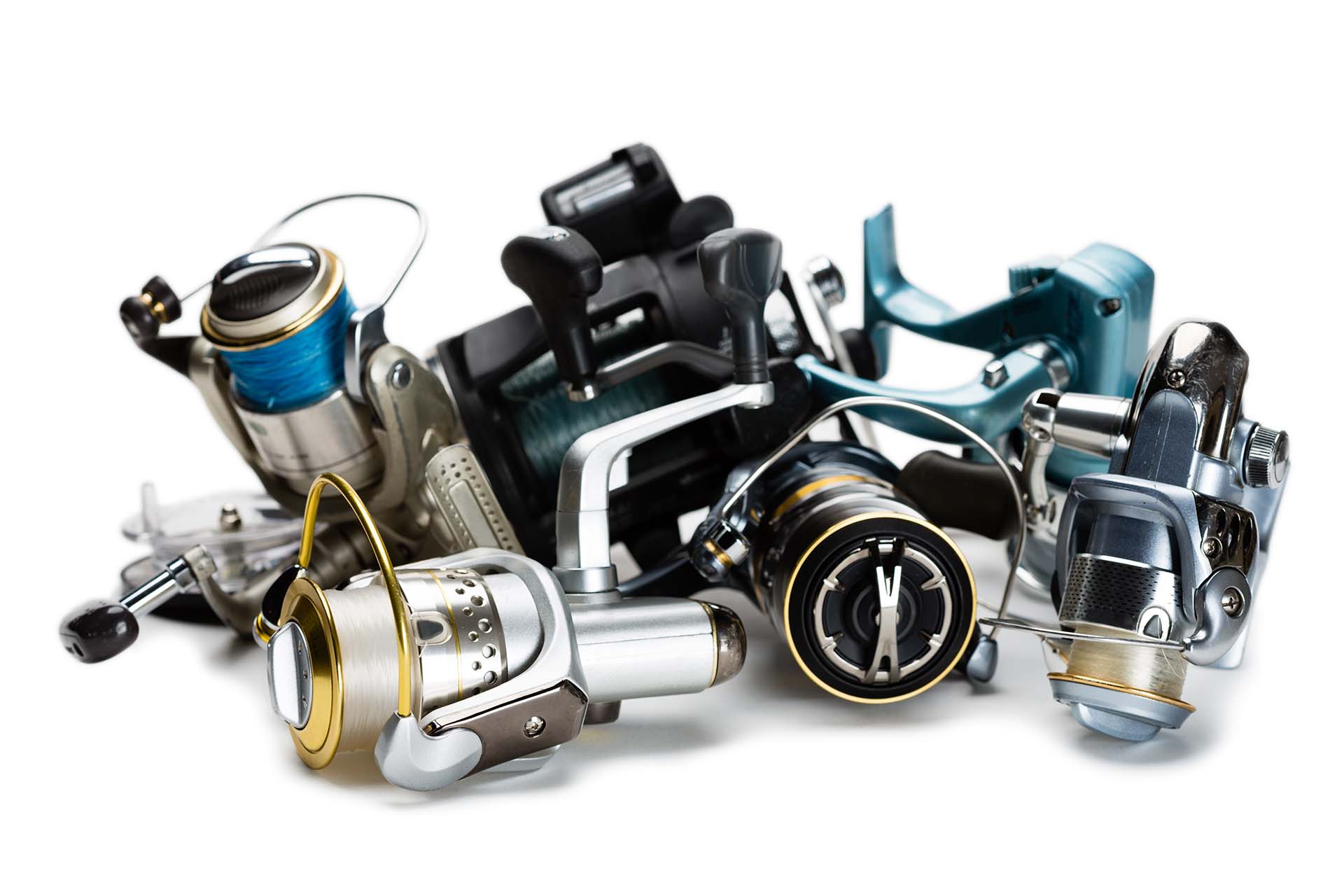Fishing is gaining popularity for both leisure and competitive anglers. But before you head off on your first excursion into deep waters, ask yourself, “Do I need a fishing license?” If you don’t want to break the law by accident, find out how each state regulates fishing, and learn more about all the types of licenses you can get.
If you want to fish in the US, you’ll need a license to legally fish in most bodies of water. However, it’s a bit more complicated since specific requirements can vary by state, age, residency status, and other factors. That’s why I’ve put together this fishing permit guide for all anglers in the US – so that you don’t have to worry about breaking local laws and instead spend more time casting away!
What Types of Fishing Licenses Are There?
There are various types of fishing licenses available in the United States, including:
- Resident Fishing License – This license is for individuals who are legal residents of the state in which they are fishing.
- Nonresident Fishing License – Non-residents of a state can obtain this license to fish in that state’s waters.
- Annual Fishing License – An annual license allows individuals to fish for a full year from the date of purchase.
- Short-Term Fishing License – Short-term licenses are available for periods ranging from one day to several weeks, depending on the state.
- Lifetime Fishing License – Some states offer lifetime licenses that allow individuals to fish for the rest of their lives without ever having to renew their licenses.
- Saltwater Fishing License – A separate license may be required for individuals who wish to fish in saltwater, depending on the state.
- Freshwater Fishing License – Similarly, some states require a separate license for freshwater fishing.
- Federal Permits – While fishing in federal waters does not typically require a permit, some states, like New York, may require registration for saltwater fishing offshore or in designated areas. The National Oceanic and Atmospheric Administration (NOAA) Fisheries manages the Atlantic and Pacific Oceans and the Caribbean Sea waters from 3 miles to 200 miles from shore and Gulf of Mexico waters from 9 miles to 200 miles from shore.
- Gear Permits – Some states require gear permits for using specific equipment, like crab traps or seine nets.
- Species Permits – You can enhance your fishing license by purchasing additional permits or tags to target certain species, such as crabbing, clamming, or tarpon fishing.
Who Needs a Fishing License?
Generally speaking, anyone who wants to go fishing in the United States will need a fishing license. However, the specific requirements can vary depending on factors like age, residency status, and the type of water you plan to fish in. But don’t worry, getting a fishing license is usually a straightforward process, and it helps ensure that our natural resources are protected and preserved for generations to come. So if you’re planning a fishing trip, be sure to check the regulations in your area to make sure you’re all set to hit the water!
Are There Consequences to Fishing Without a License?
Simply put – yes, there can be consequences to fishing without a license. The penalties can vary depending on the state and the severity of the offense, but it’s possible to face fines, confiscation of fishing equipment, and even criminal charges. It’s important to follow the rules and regulations to protect fish populations and ensure sustainable fishing practices for future generations. Plus, obtaining a fishing license is typically an easy and affordable process that helps support conservation efforts and maintain the health of aquatic habitats.
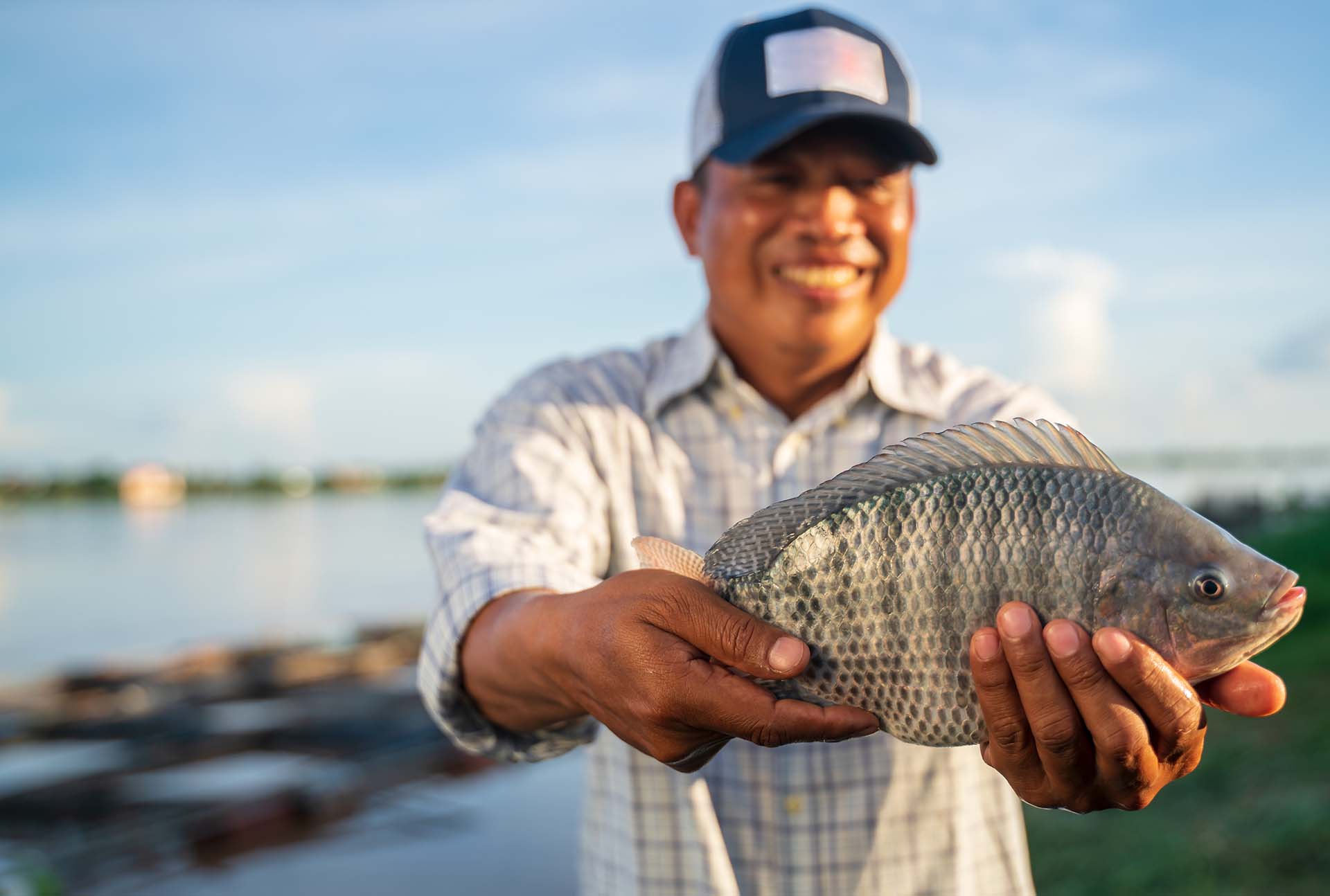
Do People in the Northeast Region of the US Need Licenses?
Yes, people in the Northeast region of the US generally need fishing licenses to legally fish in most bodies of water. This includes states such as Maine, New Hampshire, Vermont, Massachusetts, Rhode Island, Connecticut, New York, New Jersey, and Pennsylvania.
Notice that anglers with a valid marine fishing license from Maine, Massachusetts, Rhode Island, and New York can fish in the marine district and land marine fish in this state under reciprocity agreements.
Do I Need a Fishing License in Connecticut?
In Connecticut, a fishing license is mandatory for anyone aged 16 years and older for fishing in both inland and marine waters, regardless of whether they fish from the shore or a boat. Residents who are 65 years of age or older are eligible to receive a free lifetime fishing license, which will need to be renewed annually at no cost.
However, there are certain exemptions for individuals who are legally blind, mentally disabled, or have limited use or loss of a limb.
Do I Need a Fishing License in Maine?
To fish in inland waters or transport fish taken from inland waters in Maine, a valid fishing license is mandatory for individuals who are 16 years of age or older. When it comes to saltwater fishing, an individual must register annually with the state of Maine.
Do I Need a Fishing License in Massachusetts?
In Massachusetts, individuals who are 15 years old or older must hold a fishing license to fish. However, licenses are available at no cost for residents aged 15-17 years, as well as for those who are 70 years of age or older. You can easily obtain your license online by visiting MassFishHunt.
Do I Need a Fishing License in New Hampshire?
Individuals aged 16 years or older, who are engaging in fishing activities in the estuarine and coastal waters of New Hampshire, are required to purchase an NH Saltwater Recreational Fishing License.
Do I Need a Fishing License in Rhode Island?
Anglers who are 15 years of age or older and want to catch fish in freshwater ponds or streams in the state must have a fishing license.
Do I Need a Fishing License in Vermont?
In order to fish, hunt, or take wild animals, individuals must be licensed unless they are exempted under the state’s exemption policy. These licenses must be carried and shown to state game wardens or other enforcement officers, as well as the landowner on whose property they are engaging in such activities. Electronic or digital copies of licenses are also acceptable.
Do I Need a Fishing License in New Jersey?
If you are 16 years or older and fishing in freshwater in New Jersey, you are required to hold a valid fishing license, regardless of what you’re using – rod, line, and handline, or arrow and longbow. This regulation applies to fishing in privately-owned lakes or other waters as well.
For saltwater fishing in New Jersey, whether it’s deep-sea, bay fishing, or recreational surfcasting, having saltwater fishing licenses isn’t a must. But you’ll need to have the New Jersey Saltwater Recreational Registry Program registration. Additionally, licenses or permits may be required for specific types of fishing. For example, for taking mollusks, anglers will need a shellfish license, and for tuna fishing, the tuna permits.
Do I Need a Fishing License in New York?
To legally fish for freshwater baitfish, freshwater fish, or frogs in New York, individuals aged 16 and above must hold a valid fishing license, regardless of whether they are fishing for themselves or assisting someone else. A license permits a variety of fishing methods, like spearing, longbow, angling, traps, hooking, nets, and tip-ups.
It’s worth noting that a New York fishing license also provides the opportunity to fish in some waters out of state, such as the Delaware River in Pennsylvania and Lake Champlain in Vermont. The complete list of bordering waters where fishing is allowed can be found in the state’s Freshwater Fishing Guide.
Do I Need a Fishing License in Pennsylvania?
To obtain a Pennsylvania fishing license, individuals can purchase one online through the Pennsylvania Fish & Boat Commission website or in person from a fishing license agent in their area. All individuals aged 16 and above are required to have a fishing license, and the state offers multi-year, annual, 7-day, 3-day, and 1-day fishing licenses for both residents and non-residents.
Pennsylvania has also introduced a new smartphone app called “FishBoatPA,” which is designed to help anglers navigate the state’s streams and lakes more efficiently.
Do People in the US Midwest Region Need Licenses?
The US Midwest region offers a wide variety of fish species for anglers to target, depending on the location and season. Some popular game fish species in the Midwest include:
- Bass (largemouth, smallmouth),
- Catfish (channel, blue, flathead),
- Walleye,
- Pike (northern, musky),
- Trout (rainbow, brown, brook),
- Salmon (Chinook, Coho),
- Crappie (black, white),
- Bluegill,
- Perch.
Other species, such as carp, gar, sturgeon, and various types of sucker fish, can also be found in the Midwest’s rivers, lakes, and streams. The specific types of fish available for targeting may vary depending on the state, body of water, and season.
Do I Need a Fishing License in Illionis?
Illinois provides a diverse range of fishing opportunities, from riverbanks and reservoirs to expansive lakes. However, before heading out to fish in Illinois, it’s crucial to follow the state’s fishing license regulations.
The most significant requirement is that individuals aged 16 and above must hold a fishing license. It’s mandatory to have either a physical license or an electronic copy with you every time you go fishing. However, certain exemptions apply to this rule depending on residency status.
Do I Need a Fishing License in Indiana?
Before engaging in fishing activities in Indiana, it’s important to ensure that you hold a valid fishing license. The revenue generated from the purchase of state fishing licenses is allocated toward funding fishery management, habitat protection, endangered species programs, and conservation education.
If you want a quick and convenient process, then you can get fishing licenses online on the Indiana Department of Natural Resources website, as the online licensing system is accessible 24/7. It’s mandatory to hold these licenses to engage in fishing activities in public boundary waters, streams, rivers, or lakes, within the state.
In Indiana, fishing salmon and trout requires compliance with special licensing regulations. Also, you must include getting salmon and trout stamps. Be sure to familiarize yourself with these specific regulations before embarking on your fishing trip.
Do I Need a Fishing License in Michigan?
To legally fish in Michigan, individuals who are 17 years of age or older are required to purchase a fishing license. Minors under the age of 17 may fish without a license, provided they adhere to all fishing rules and regulations. However, any adult actively assisting a minor who does not have a license must hold a fishing license.
Do I Need a Fishing License in Ohio?
Yes, a fishing license is required in Ohio to legally fish in public waters. All individuals aged 16 and above must hold a valid fishing license to engage in fishing activities in the state. Ohio offers a range of fishing license options, including annual, 1-day, and 3-day licenses, as well as multi-year licenses for residents.
Ohio’s fishing license requirement has several exemptions. The following individuals are not required to hold a permit:
- Anglers who fish in private lakes, ponds, and reservoirs where fish don’t migrate,
- Individuals who are assisting an angler with a blind or free mobility-impaired fishing license, but only if they are using one line,
- Anglers who fish or take turtles and frogs in the water and on land rented by their parents or by them, living there and getting the income from farming,
- People fishing or taking turtles or frogs in the water and on land owned by their parents or them, except lands in borders of state-owned lakes or state parks,
- Armed Forces members on duty while on furlough or leave,
- Individuals who fish on free fishing days, which are typically announced by the state.
Do I Need a Fishing License in Wisconsin?
When planning your fishing trip in Wisconsin, it’s important to note that certain species require a stamp privilege in addition to a fishing license. That’s how an Inland Trout Stamp Privilege is required when you plan to fish for a salmon or a trout in these inland waters. For fishing in Green Bay, Lake Michigan, Lake Superior, and streams that flow into Lake Michigan and Green Bay from their mouths up to the first lake or dam, you’ll need a Great Lakes Trout and Salmon Stamp Privilege.
Additionally, anglers can participate in Wisconsin’s free fishing weekends, which occur on the first consecutive Saturday and Sunday in June and the third consecutive Saturday and Sunday in January each year.
Do I Need a Fishing License in Iowa?
As for most states, every angler in Iowa who has 16 and more years must obtain the state’s fishing license. Only then can you enjoy fishing for a diverse range of freshwater species, including smallmouth bass, largemouth bass, crappie, trout, bluegill, channel catfish, walleye, yellow perch, or muskie. However, it’s important to take a look at the Iowa Bay regulations and, depending on the species and area you plan to fish in, ensure that you are following all rules and guidelines.
Do I Need a Fishing License in Kansas?
If you are a resident of Kansas and between the ages of 16 and 74, you must have a resident license while fishing. Nonresidents who are 16 or older must have a valid nonresident license in order to fish in Kansas. It is important to ensure that you have a valid license with you at all times while fishing in the state.
Do I Need a Fishing License in Minnesota?
If you’re planning to fish in Minnesota and you’re 16 years old or older, you’ll need to purchase a fishing license. You can buy a license online from the Minnesota Department of Natural Resources, over the phone, or in person from a state-approved agent, such as a tackle shop or sporting goods store. Annual licenses are valid until February 28 of the following year.
To stay up-to-date with the latest fishing regulations, species information, and lake maps, you can use the state’s new mobile app called Fish MN. It provides a variety of useful features for anglers.
Do I Need a Fishing License in Missouri?
To fish in Missouri, you must have a permit unless you meet the criteria for exemption. These fishing permits cover fish, mussels, crayfish, turtles, frogs, clams, and live bait. In addition to the general fishing permit, you may need a permit for specific species. For instance, possessing trout requires a trout permit. The website of the Missouri Department of Conservation provides a list of permits required for each species.
Missouri’s general fishing permit requirement has some exemptions that are not required to have a permit. These include:
- Resident landowners who own lands of five acres or more and fish on it,
- Missouri residents who are 65 years old or older,
- Anyone who is 15 years old or younger, whether a nonresident or resident,
- Veterans who are honorably discharged or active military members with a service-related disability of 60% or more, former prisoners of war, or currently patients in a Warrior Transition Unit and Warrior Transition Brigade,
- Individuals with serious medical conditions, such as a corrected vision of 20/200 or less or a 20-degree field of visual concentric contraction or less, individuals who require the aid of a wheelchair to move, and mentally impaired individuals who cannot fish alone, but can be accompanied by a licensed adult angler.
Do I Need a Fishing License in Nebraska?
The Nebraska Game and Parks Commission is responsible for establishing the regulations and laws that govern recreational fishing and game activities in Nebraska. These regulations cover various aspects of fishing, including fishing seasons, bag and length limits, and permissible gear or tackle.
Nebraska offers a range of fishing licenses and permits that can be purchased online, including annual and lifetime licenses. If you plan to fish frequently for years to come, a lifetime license can save you money in the long run. All persons aged 16 and above must have a sport fishing license to fish. You can choose from various options such as annual, multi-year, 1-day, or 3-day sport fishing licenses.
Do I Need a Fishing License in North Dakota?
Purchase your North Dakota fishing license online and plan a fun-filled family fishing trip to locations such as Heart Butte State Game Management Area and Reservoir in Elgin, where you can catch smallmouth bass or crappie.
To obtain a North Dakota fishing license, the quickest option is to purchase it online. Once the transaction is completed, you can print out your license and begin fishing right away. Besides the license type, fishing license fees also vary depending on the resident status, so make sure to read the descriptions carefully before making a purchase. A North Dakota fishing license is valid for one year, with the validity lasting from April 1 of the year of issuing until March 31 of the following year.
Do I Need a Fishing License in South Dakota?
No matter where you choose to cast your line, whether it’s from the shores of Lake Alvin in Harrisburg or by boat in the fishing hotspot on Lake Sharpe, make sure you have a fishing license that is valid.
Do People in the South Region of the US Need Licenses?
Anglers in the South Region of the US can target a variety of freshwater and saltwater fish species depending on the location and season. Some popular freshwater species include largemouth bass, crappie, catfish, bream, and trout. In saltwater areas, anglers can target species such as redfish, speckled trout, flounder, snook, tarpon, and many species of offshore fish like grouper, snapper, and tuna. It’s important to check local regulations and seasons for specific species and areas.

Do I Need a Fishing License in Delaware?
To catch fish, clam, or crab in any waters, obtaining a license is mandatory. Moreover, in addition to the license, a Fisherman Information Network (FIN) number issued by Delaware is also required.
Do I Need a Fishing License in Florida?
Florida’s fishing and hunting regulations necessitate that both residents and visitors must have a valid Florida hunting, freshwater fishing, or saltwater fishing license while participating in fishing and hunting activities. This license is essential when attempting to catch fish, even when fishing for catch-and-release purposes or casting a line.
There are some exceptions to Florida’s fishing license requirements. The following groups are exempt from purchasing a fishing license:
- Children under the age of 16,
- Florida residents who are 65 years of age or older and possess proof of age and residency, such as a driver’s license or voter ID card,
- Florida US Armed Forces members who actually aren’t stationed in Florida but are on 30 days of leave or less,
- Florida residents who possess a Florida Resident Disabled Person Hunting and Fishing Certificate and are permanently and totally disabled,
- Individuals who are fishing from a licensed pier,
- Individuals who are fishing during Florida’s designated free fishing days.
Do I Need a Fishing License in Georgia?
In Georgia, anglers who are 16 years or older must have a valid Georgia fishing license for freshwater or saltwater bodies. Licenses can be obtained through various mediums, such as online, in-person at authorized locations, or over the phone. The revenue generated from license purchases is directed toward the conservation of Georgia’s aquatic resources.
Do I Need a Fishing License in Maryland?
Maryland state law mandates that individuals aged 16 years or older must obtain a license for sport fishing or crabbing, except if they are eligible for an exemption. Furthermore, if you intend to go saltwater fishing in a location where it’s required, you’ll also need to register for the Maryland Saltwater Angler Registration.
Do I Need a Fishing License in North Carolina?
Starting from January 1, 2007, individuals aged 16 years or older who wish to engage in recreational fin fishing in North Carolina’s designated coastal or joint waters must obtain an NC Coastal Recreational Fishing License (CRFL).
Do I Need a Fishing License in South Carolina?
In South Carolina, both residents and visitors who are 16 years of age or older are required to obtain a fishing license to engage in fishing activities. It is mandatory to carry a fishing license while fishing.
Do I Need a Fishing License in Virginia?
Residents in the state who are 16 years of age or older must obtain a freshwater fishing license issued by either the state or county authorities. Fishing in a Designated Stocked Trout Water will require an additional trout license. Please note that residents cannot use a 5-day freshwater license together with a trout license.
Do I Need a Fishing License in Washington DC?
To fish or shellfish in the capital’s waters, both residents and nonresidents must hold a valid license. Individuals who are 15 years of age or older must obtain a fishing license. The exceptions are those who are fishing for common carp, crawfish, bullfrogs or collecting relic shells, for which no license is needed.
Do I Need a Fishing License in West Virginia?
Anglers aged 15 years or older must carry a fishing license and a valid form of identification while fishing. If an individual violates the provisions outlined in this section, they will be charged with a misdemeanor. Upon conviction, they will be subject to a fine ranging between $100 to $500, imprisonment in the county jail for a period of 10 to 100 days, or both.
Do I Need a Fishing License in Alabama?
Alabama residents who are between 16 and 64 years old and use rod and reel or artificial bait to fish are required to obtain a valid fishing license. Additionally, this license is mandatory for those who fish with hook and line (cane pole) outside their county of legal residence.
Do I Need a Fishing License in Kentucky?
Individuals, whether residents or nonresidents, must possess the appropriate license and permit to fish in any Kentucky waters or hunt in Kentucky. It is mandatory to fill out and carry the required license and permit.
Additionally, a trapping license is mandatory for all resident and nonresident trappers aged 12 years or older, including landowners/tenants, unless otherwise specified by law.
Do I Need a Fishing License in Mississippi?
In the state of Mississippi, every resident aged between 16 to 64 years old, who fishes in fresh or marine waters, including lakes and reservoirs, with the exception of privately owned ponds and streams, must purchase a fishing license.
However, above Highway 90 and below Interstate 10, either a saltwater or freshwater license will suffice. Furthermore, above Interstate 10, a freshwater license is required. Please note that individuals who are under the age of 16 are exempt from this requirement.
Do I Need a Fishing License in Tennessee?
In order to take fish or attempt to take fish (including crayfish) using any method or to assist someone else in doing so, a valid fishing license is required, with certain exceptions. Individuals who are under the age of 13, whether resident or nonresident, do not need to obtain a fishing license.
Do I Need a Fishing License in Arkansas?
In Arkansas, individuals who are 16 years of age or older must hold a valid fishing license to take or attempt to take fish and frogs, except when fishing in a licensed “put-and-take” pay lake. Moreover, anglers who are 16 years or older must have a valid trout permit to catch and retain trout or fish in certain waters.
Do I Need a Fishing License in Louisiana?
A fishing license is required in Louisiana for both residents and nonresidents who wish to fish in public waters. The only exceptions are individuals who are considered “honorably discharged veterans” with a service-connected disability, as well as residents who are over the age of 60 and who have lived in the state for at least 6 months. However, even with these exceptions, it is necessary to comply with certain regulations and rules.
Do I Need a Fishing License in Oklahoma?
A valid license and permits are needed if you wish to fish in Oklahoma’s public waters. However, there are a few exceptions, such as:
- Residents who are up to 15 years old,
- Residents who are 65 years of age or older (or turn 65 during the current calendar year) and have been a resident of Oklahoma for at least six months,
- Residents who have a 100% disability from any war or armed conflict, as certified by the United States Department of Veterans Affairs,
- Nonresidents who are under 16 years old,
- Nonresidents who hold a fishing license from their home state, provided that the state has a reciprocal agreement with Oklahoma.
Do I Need a Fishing License in Texas?
Fishing in public waters of Texas requires a fishing license, regardless of the legal means or methods used, ranging from rod and reel to bow fishing. However, all individuals who are under the age of 17, whether they are residents or nonresidents of Texas, are exempt from the licensing requirements.
Do People in the West Region of the US Need Licenses?
Anglers in the West Region of the US can target a variety of fish species depending on the specific state and body of water. Some common fish species in the West Region include trout, salmon, bass, walleye, pike, catfish, crappie, and perch. So, make sure you’re completely aware of every state’s regulations.
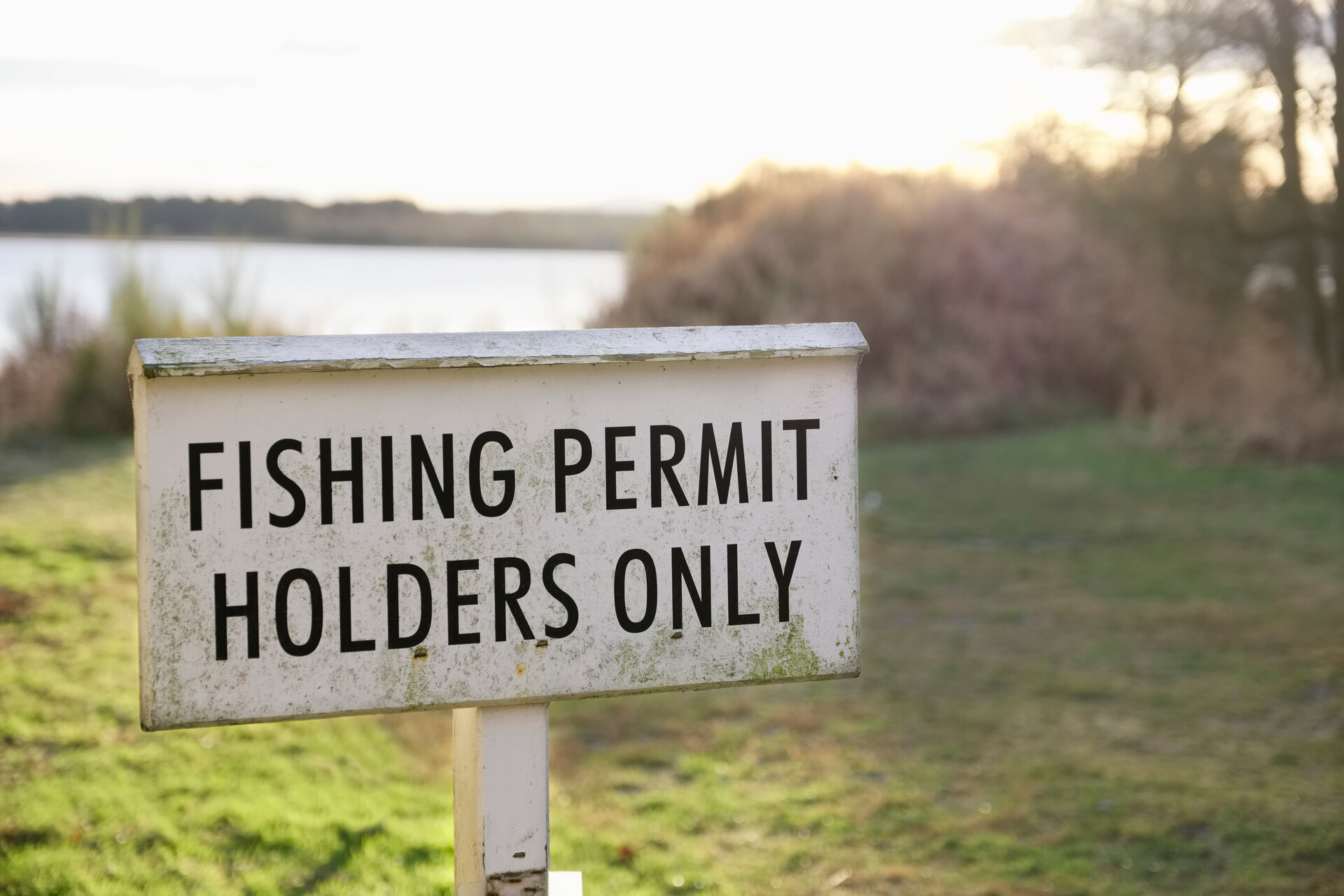
Do I Need a Fishing License in Arizona?
A fishing license is required in Arizona to tackle fish, and it must be carried by the licensee while participating in fishing activities or any other form of take. The license covers the pursuit, shooting, hunting, fishing, trapping, killing, capturing, snaring, or netting of wildlife.
Do I Need a Fishing License in Colorado?
In Colorado, you can fish without a license only during the first full weekend of June each year. However, all other fishing rules and regulations still apply. For instance, there are bag and possession limits, as well as minimum size requirements for catching walleye. Specifically, anglers can catch up to 3 walleye that are at least 15 inches long, but only one walleye longer than 18 inches may be taken per day.
All individuals aged 18 or older must have a license to fish, and it’s $39.71. A combination of hunting and fishing licenses is also available. With the purchase of the first fishing license of the season, a Habitat Stamp of $11.50 is required for residents and nonresidents between the ages of 18 and 64. Disabled individuals are exempt from this requirement.
Do I Need a Fishing License in Idaho?
Individuals who are 14 years of age and above need to obtain a fishing license in Idaho, regardless of residency status. However, resident anglers under the age of 14 are exempted from this requirement and can have their own fishing limit.
On the other hand, nonresident anglers under 14 must be accompanied by a licensed adult, and their catches count towards the license holder’s fishing limit unless a separate permit is purchased for the child.
Do I Need a Fishing License in Montana?
Individuals who are 12 years old or older must possess a valid fishing license to engage in any type of fishing activity on state waters. The license permits an individual to fish for and possess any fish or aquatic invertebrate allowed by the state’s fishing regulations. The license can’t be transferred or refunded.
Do I Need a Fishing License in Nevada?
While people of all ages are permitted to go fishing, individuals who are 12 and older must carry a valid fishing license with them while fishing. Otherwise, you’ll get penalties from $50 to $1,000.
Do I Need a Fishing License in New Mexico?
Anglers who wish to fish and are 12 and older must possess a valid New Mexico Fishing License or Game-hunting & Fishing License. Licenses are valid from April 1 through March 31 of the following year. A New Mexico Fishing License is not required on tribal reservations and Class-A lakes.
Do I Need a Fishing License in Utah?
It’s important to select the appropriate fishing license based on your residency and the duration of your intended fishing activities, as state fishing license fees vary accordingly. Opting for multi-year fishing licenses can often result in cost savings over an extended period.
In Utah, all individuals aged 12 and above must possess a fishing license to catch any species of fish. These licenses are issued every month of the year and remain valid for up to five years.
Do I Need a Fishing License in Wyoming?
Anglers who are 14 years or older, both residents and non-residents, must obtain a fishing license unless fishing in waters where fishing preserve permits, landowner fishing regulations, or special limited fishing permits are in effect.
Do I Need a Fishing License in Alaska?
To participate in Alaska sport and personal use fisheries, all residents aged 18 and older and nonresidents aged 16 and older are required to obtain and carry a sport fishing license. Additionally, fishing for king salmon (excluding king salmon in stocked lakes) mandates the purchase of a king salmon stamp.
Do I Need a Fishing License in California?
In order to fish in California, a valid fishing license is mandatory for everyone who is 16 years and older, with the exception of fishing on a public pier. Even if you catch a fish on the pier and land it on the beach, you still need to carry a valid license to avoid being cited.
Do I Need a Fishing License in Hawaii?
Currently, residents of Hawaii do not require a marine recreational fishing license, and while a license for visitors is being developed, it has not been put into effect yet. Therefore, if you do not intend to sell your catch, there is no need to be concerned about obtaining a license.
When it comes to freshwater fish, all anglers who wish to tackle it must have a permit. However, minors who are under the age of 9 are allowed to fish with a licensee.
Do I Need a Fishing License in Oregon?
Acquiring a fishing license along with relevant tags and endorsements is mandatory for anglers aged 18 and above. However, children who are below 12 years of age are not required to obtain a license to fish or shellfish.
Do I Need a Fishing License in Washington?
A fishing or shellfishing license is required for all individuals, regardless of residency status, who intend to fish or shellfish in Washington waters. Individuals who are 15 years of age or older must obtain a fishing license, while those who are fishing for common carp, crawfish, bullfrogs, or collecting relic shells are exempt from this requirement.
Do I Need a Fishing License? Make Sure You Know the Answer Before Going on a Fishing Trip
It is imperative to remember to purchase a fishing license before going out on your fishing trip. Not only is it good practice, but it also helps support the regulations and safeguards put forth by the governing agencies responsible for fish conservation and habitats. After all, being prepared and having valid paperwork will help you stay within the law while allowing you to enjoy the many pleasures of fishing in the great outdoors.

